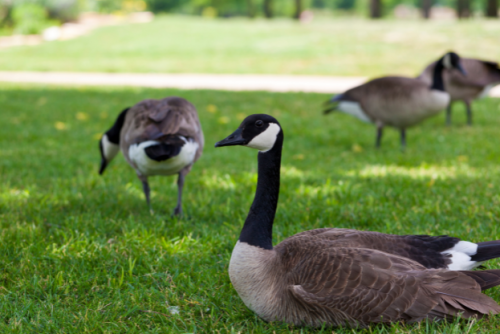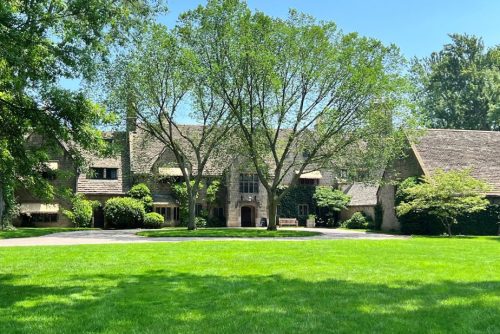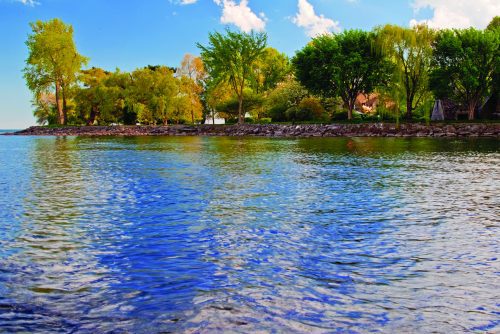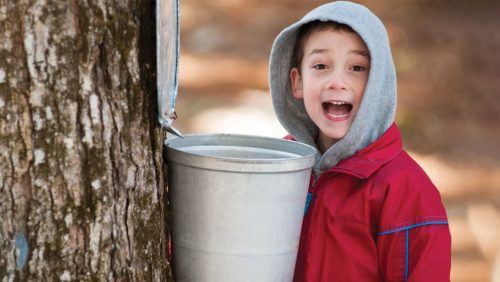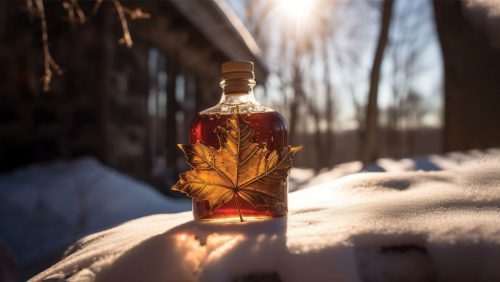A History of Maple Tapping in Michigan
Maple tapping, the age-old practice of extracting sap from maple trees to create delicious syrup, has a rich and storied history in Michigan. As winter gives way to spring, the forests of Michigan come alive with the sound of taps being hammered into maple trees, marking the beginning of a sweet tradition that has been cherished for generations.
Ford House participates in maple tapping each year, resulting in pure maple syrup being sold from the trees on the estate. Visitors can learn more about our maple tapping and more at programs like our adults-only Maple Syrup: Tapped, Shaken, and Served or our Family Workshop: Maple Syrup.
Early Beginnings:
The indigenous peoples of Michigan, including the Ojibwa, Ottawa, and Potawatomi tribes, were among the first to tap maple trees for their sap. They would collect the sap in birch bark containers and boil it down to produce a sweet syrup, which they used as a source of energy and nutrition. For these early inhabitants, maple tapping was not only a practical necessity but also a sacred ritual, symbolizing the renewal of life as winter gave way to spring.
European Influence:
With the arrival of European settlers in the 17th and 18th centuries, the practice of maple tapping spread further across the region. French fur traders and explorers, in particular, adopted the techniques of the indigenous peoples and began tapping maple trees to produce syrup for trade and consumption. As settlements expanded, maple tapping became an integral part of the rural economy, providing a valuable source of income for many farmers and homesteaders.
Industrialization and Commercialization:
The late 19th and early 20th centuries witnessed significant advancements in maple tapping technology, with the invention of metal spouts and vacuum systems that made the process more efficient and productive. This period also saw the rise of commercial maple syrup production in Michigan as large-scale operations emerged to meet the growing demand for this sweet delicacy. Maple festivals and sugarhouses became popular attractions, drawing visitors from far and wide to experience the magic of maple tapping firsthand.
Modern Practices:
Today, maple tapping remains an important tradition in Michigan, with thousands of producers across the state continuing to tap trees and produce high-quality syrup. While modern equipment and technology have made the process more streamlined, many producers still adhere to time-honored techniques passed down through generations. Maple tapping season typically begins in late winter and lasts until early spring, depending on weather conditions, with producers carefully monitoring sap flow and collecting it in buckets or through tubing systems.
As we reflect on the history of maple tapping in Michigan, we are reminded of the deep connection between people, land, and tradition. From its humble beginnings among the indigenous peoples to its role in shaping the state’s agricultural heritage, maple tapping continues to be a cherished part of Michigan’s cultural identity. So, the next time you enjoy a stack of pancakes drizzled with golden maple syrup, take a moment to appreciate the centuries of tradition and craftsmanship that have made it possible.
Family Workshop: Maple Syrup
Be ready for an outdoor escapade—dress appropriately for the weather as we navigate uneven terrain that might be snowy, icy, or muddy. In case the weather doesn’t cooperate, fear not! Your tickets can support Ford House Education initiatives or be swapped for another amazing program.
Maple Syrup: Tapped, Shaken, and Served
Explore the nuances of maple syrup production, learn tree identification techniques, and witness a live tapping demonstration in our scenic “sugar bush.” Be captivated by the history and craftsmanship behind making maple syrup as you observe the boiling process firsthand at our wood-fired syrup evaporator.



